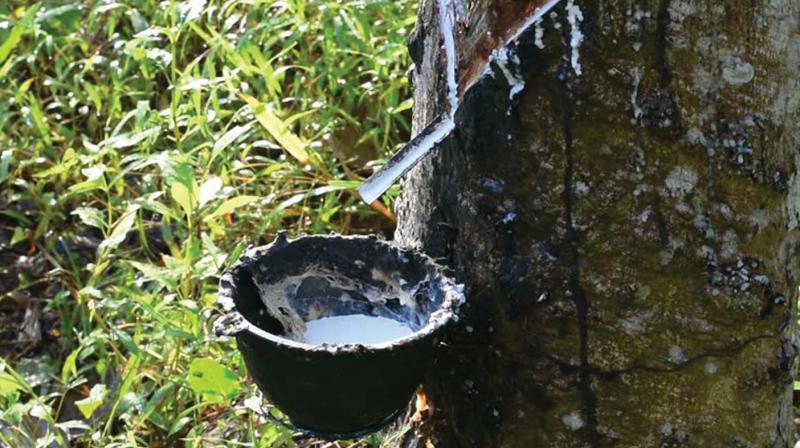It's time Kerala revived rubber sector or sought options
Fall of rubber economy in Kerala has hit trade and consumption, say stakeholders.

THIRUVANANTHAPURAM: It is now a foregone conclusion that for the state economy to stand on its feet either the rubber sector has to revive in a dramatic fashion or the players in the sector should stumble upon a better alternative. Revival looks a vague possibility as trade barriers had long vanished and natural rubber is freely flowing in from the mountainous regions of South East Asia that have shifted to rubber, as if with a vengeance. Rubber plantations are lying virtually dead but alternatives have still not emerged. In short, the state's economic woes will continue to persist.
"If the rate of tax growth is a pitiable seven per cent, a good part of the reason could be chalked up to the fall in consumption in the rubber districts of Kottayam, Kollam, Pathanamthitta, and Idukki," a top finance department official said. Besides Ernakulam, growth in tax revenue is least in rubber belt areas like Kottayam, Pathanamthitta and Kollam and Idukki. "In fact, the Ernakulam economy too was once propped up by the big-sending families of the rubber belt," the official said.
Planning board member Dr K.N. Harilal, who had nearly a decade ago predicted the rubber crisis, said that rubber was the state economy's backbone. "The fall of the rubber economy has obviously hit trade and consumption," he said. As for tax sleuths, they view automobile sales as a barometer of consumption in an area. "Automobile sales in rubber belts have dropped drastically in the last one-and-a-half years. This could be one major reason why there is no significant growth in the sales tax on petrol, a component that is never impacted by the quirks of purchasing power," a tax official said.
It looks as if people have given up. Though Rs 500 crore had been allocated for the rubber price stabilisation scheme for the 2017-18 fiscal, only Rs 200 crore have been disbursed till January 20. During the 2016-17 fiscal, nearly Rs 500 crore was utilised for the compensation scheme. "This can mean only one thing. People have stopped tapping rubber trees, and rubber is gradually being abandoned," a source close to finance minister Dr T.M. Thomas Isaac said. Perhaps, as Dr Harilal said, unproductive rubber swathes could be opened up for dairy farming or, better still, for the setting up of small industries.

